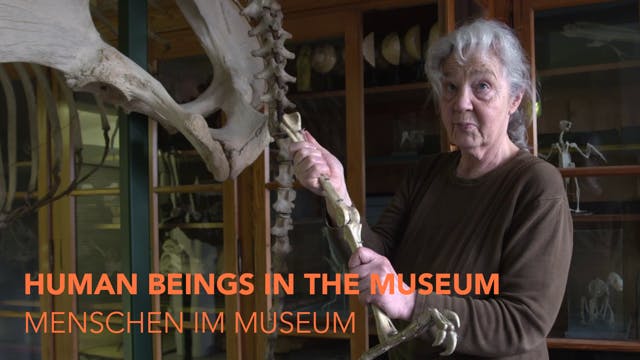Hopa Lide
Social Sciences and Humanities
•
1h 29m
The Roma (often disrespectfully called “Gypsies”) are members of an underprivileged ethnic minority persecuted all around the world. But there is one cultural trait for which they are celebrated globally: their music making. This has been reflected extensively across cinema – classic and contemporary, fiction and documentary – with Romani musicians becoming magnets for various enduring fantasies and prejudices. Hopa lide takes a radically different approach to depicting Romani musicianship. Based on ten years of research in the community of Slovak Romani musicians, it is a collaborative documentary consisting of three chapters. Each depicts the creation of a music video, the musicians leading their self-representation by taking on the role of directors. Uniquely, the camera is always on the move, always improvising. It joins the musicians as they move from the spotlights of large venues to intimate backstages, capturing a mixture of wit, mundane struggle and unfulfilled dreams. From these bittersweet musical lives, deeper questions emerge: What actually is Romani music? What is it like to be a Romani musician? And what does it mean to be Roma in today’s world? The film invites the audience to question deeply rooted stereotypes about Roma from its unusual position as a documentary made with rather than on Roma.
Directed by Petr Nuska
Petr Nuska is a visual ethnomusicologist and ethnographic filmmaker. His passion for capturing music straddles music documentaries and music videos, both guided by commitment to innovation in pursuit of underexplored perspectives on music. Since 2011, he has been involved in projects worldwide in the fields of documentary and ethnographic film, educational and activist videos, and production of music videos with independent musicians. His recently completed doctoral research at Durham University concerned the musicianship of the Roma in central Slovakia. The film "Hopa lide" is his feature-length directorial documentary debut based on long-term research in this locality.
Up Next in Social Sciences and Humanities
-
Human Beings in the Museum (Menschen ...
Museumization is stagnation, at least when understood in the traditional sense. Certain things are removed from their everyday existence and declared to be something special. From now on, its role is to be looked at, understood and often revered. In natural history museums, the moment of standing...
-
Dreams Deferred: Legacy of American A...
A film exploring the realities of a system of exclusion via the Criminal Justice System affecting the African American community. The focus is on drug laws from the 1970’s taking a national prison population of 300,000 to 2.5 million. The Children’s Defense Fund stating, “1 of 3 African American ...
-
Women Are the Answer
Population growth has been left out of the climate debate because it is considered controversial, yet it is one of the most important factors. The global population has passed the 7 billion mark and India will soon overtake China as the most populous nation in the world, but one state in southern...



